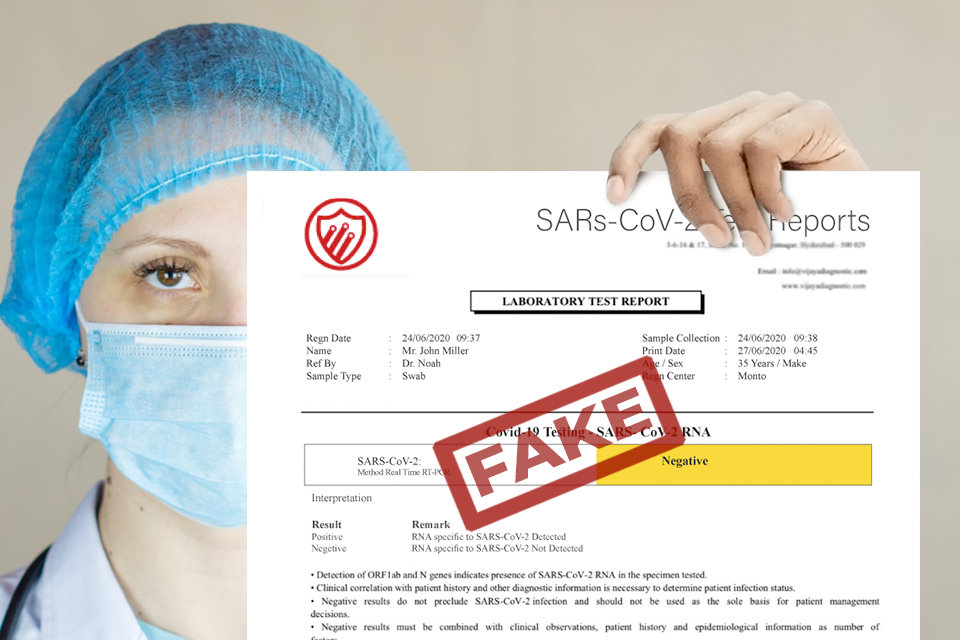Introduction
As we approach the two year anniversary of Covid, let’s look back on how the pandemic has shaped cybercriminal activity. In the beginning, they advertised falsified test kits and vaccines that cost a fortune and rarely worked as intended. Now the dark net is evolving even further: As vaccination becomes simultaneously more commonplace and required, bad actors are developing false proofs of vaccination to sell on the black market too.
The Dark Web’s Attack on Safety
Since vaccines started rolling out approximately one year ago, more and more places have been requiring proof of vaccination, or “vaccine passports,” to enter. That includes countries, cities down to particular establishments. Everyone has their own rules and levels of comfort. For example, many airlines are requiring proof and negative test results before flying; and on a micro level, businesses have their own personal rules that range from vaccine verification to mask mandates around the establishment. Restaurants have implemented different requirements for indoor versus outdoor seating.
In many cases, such as in the European Union, these verified passports come with a QR code for residents to keep on their smart phones. As this expectation spread, it presented a golden opportunity for tech-savvy criminals to create a false QR code that they could sell to unvaccinated people for large sums of money.
At least seventeen underground marketplaces have been uncovered by authorities as of December 2021.
Effectiveness of Fake Covid Passports
It’s not only QR codes that are being faked, either. In the United States, for example, many counties such as Los Angeles will send an individualized code to keep in your smart Wallet, so it’s not something extra that people have to keep track of and carry around. Yet as a whole, the U.S. largely relies on issuing physical cards that prove a person’s vaccination status.
These are just as complicated to fake; some surely PASS, but most are simply a waste of time and money and will be spotted by those in the new very quickly, like any other ID. Still, with these fakes selling for anywhere from $10 to well into the hundreds of dollars, the unvaccinated are still willing to pay for the chance. Given the wealth of digital editing tools at our disposal today, it’s tough to watch every scammer and potential sales avenue developing almost as fast.
In the meantime, websites like Twitter and Shopify are making efforts to stop scammers from advertising and selling on their platforms. Yet the relative newness of these false documents, especially given our constantly-changing requirements surrounding Covid safety, can make it hard to keep up. Nonetheless reputable organizations are working toward these consumer safety efforts.
How to Protect Yourself
The most difficult part of evolving cybercriminal activity is developing laws and practices that are effective against new illicit practices. The FBI has officially categorized these false proofs of vaccination as a crime, which is aimed at preventing people from intentionally seeking out or creating these false records, and reducing how many are duped as a result.
Meanwhile, authorities also recommend that everyone take precautions online to prevent becoming accidentally entangled with these crimes.
- Don’t post photos of your vaccine passports online.
- Acquire verified passports from reputable sources.
- If you lose your vaccine passport, don’t fill out your own blank copy.
- Use the same vaccination card at booster visits to keep updated information together.
Missteps could unknowingly put you in the sights of cybercriminals, whether they steal your personal information to create fraudulent passports or target you as a potential mark. Internet safety remains paramount in every part of life, especially in situations inherently loaded with concern and heavy consequences. These fraudulent documents can lead to huge fines and even jail time.
Conclusion
Why are vaccine passports so sought after? It’s not just a matter of where you can travel, but affects daily life down to where you can eat and when masks are required.
As scammers continue honing their tactics, it’s increasingly important to be careful of where you’re interacting on the internet. Keep to reputable organizations when getting a passport, bring your verified card to get boosters and maintain your usual internet safety standards at all times. Cybersecurity matters in your personal life just as much as the professional one.
References
- https://www.databreachtoday.com/darknet-markets-advertise-fake-covid-19-vaccine-passports-a-18010
- https://www.newscientist.com/article/2299962-fake-covid-19-vaccine-certificates-are-being-sold-on-the-dark-web/
- https://www.reuters.com/article/health-coronavirus-vaccine-passports/booming-market-for-fake-covid-19-vaccine-passports-sparks-alarm
- https://abc7news.com/fake-vaccine-passport-covid-cdc-usa/10489044/
- https://www.beckershospitalreview.com/healthcare-information-technology/what-s-the-penalty-for-using-fake-vaccine-cards-3-things-to-know.html



